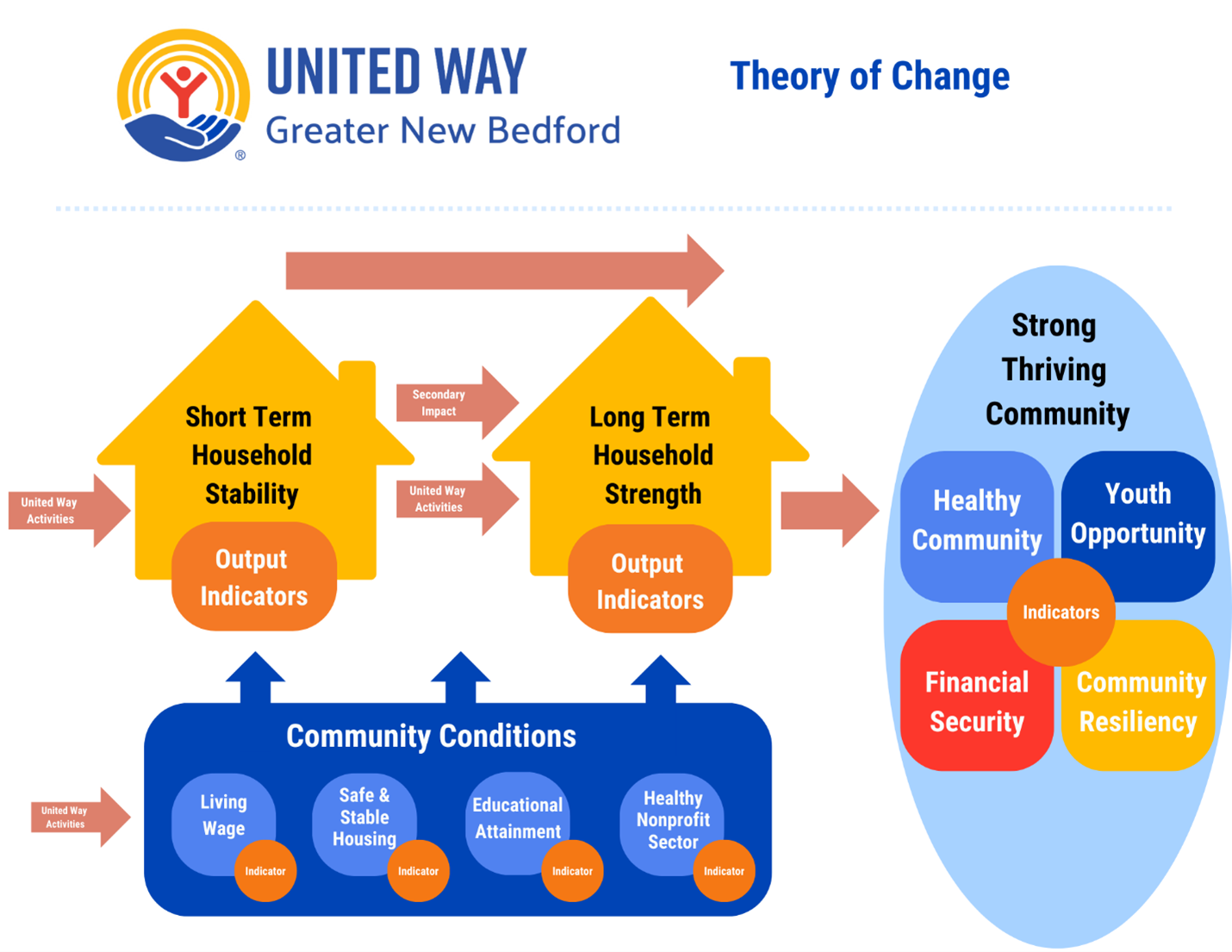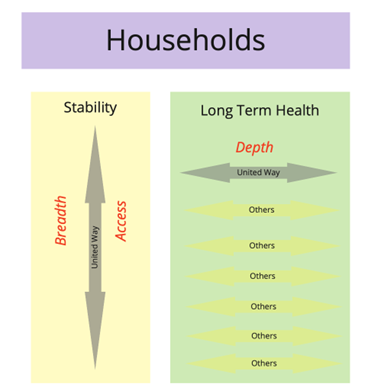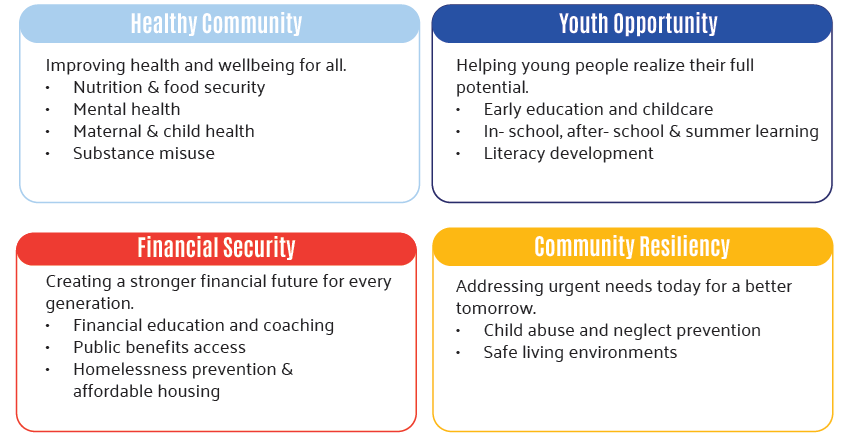
Theory of Change - Impact Agenda September 2024


Our Vision
A region where all people have access to the resources and opportunities they need to thrive.
In short, a Thriving Community.
Our Thriving Community is one where:

Goal 1
Address our most pressing regional challenges through measurable community impact strategies and collaborate with partners to catalyze equitable outcomes.
Our Work
To contribute to the creation of our Thriving Community we:
- Operate programs
- Fund aligned programs
- Convene and connect partners, donors, and volunteers
Our Priorities for 2024-2029 (Our Impact Agenda)
We will leverage our work to address three priorities that are essential to building a Thriving Community. We will align our program and funding strategies with these three priorities.
(Note - we are arguing that these things are all necessary for a Thriving Community, not that they are sufficient. Other things contribute to progress on the Thriving Community indicators. But we know we need these things and UWGNB is uniquely positioned to support progress on these.)
1. Ensure Households are Stable
We work to meet the immediate needs of households to increase short-term stability in daily living.
Indicators:
- Eviction prevention - # of households provided direct support and/or connected to other community resources.
- Shelter access - # of provided shelter beds, # of available beds, # of households placed in shelters (FRC)
- Emergency food access - # of households served overall through us and food pantry partners, Volume of food distributed overall, # of households reached with mobile market, Volume of fresh food distributed in mobile market
- Households connected to support (via Family Resource Center and partners)
- Total investment in emergency support tied to UW
- Volume of books distributed
UWGNB is positioned strongly in this work and will sustain its efforts.
Current UWGNB Efforts include:
- Foster family support
- Family Resource Center
- Access to rent and utility assistance
- Food pantry support and access
- Funding for shelters and emergency support
2. Households can Access Pathways for Long-Tem Success
We support programming that can work deeply with households to increase access and demonstrate the power of creating these pathways.
Indicators:
- # of Low-income households using childcare vouchers overall and in comparison to the estimated number of low-income children
- Reported increase in household savings by program participants and overall regional savings rate
- Reported/identified improvement in credit score
- Job stability - reduction in employment absences and/or missed scheduled time.
- # of kids in out-of-school time programming (Community overall and UW supported)
- # of families participating in early intervention support
- Reduction in referrals to DCF annually
UWGNB has developed and grown programs in this priority and will strengthen its efforts.
Current UWGNB Efforts include:
- Financial Wellness at Work
- Financial Wellness for Women
- Transitional Housing Access
- Public Housing Access
- Support groups and programs for parents
- Literacy support programs
- Early childhood education support
3. Create Supportive Community Conditions
We initiate, join, and support shared efforts to address gaps in the community conditions that impact household success.
Indicators:
- Nonprofit organizations are resourced with access to volunteers and learning opportunities to ensure effective and efficient operations. (annual rating, % reporting positive revenue/ budgets)
- Food supply and access
- Support for low- and moderate-income housing increases to meet the demand for safe, stable and affordable housing for families.
- Economic development provides access to living wage jobs and career opportunities.
UWGNB is valued as a leader who can leverage relationships in support of this priority and will grow into expanded efforts.
Current UWGNB Efforts include:
● Fundraising
● Community Partnerships
● Leadership in/of Key Initiatives
● Mass 211/Lantern
● Volunteer engage/Volunteer SouthCoast
